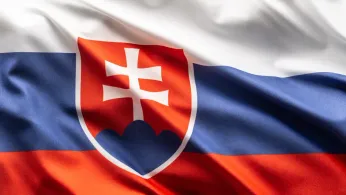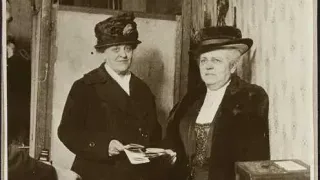
3 hours ago
Slovakia Enacts Constitutional Amendment Restricting Gender Recognition and Same-Sex Adoption Rights
READ TIME: 3 MIN.
On September 26, 2025, Slovakia’s Parliament approved a controversial constitutional amendment that restricts legal gender recognition exclusively to “male” and “female,” effectively erasing recognition for non-binary and transgender identities under Slovak law. The amendment also contains provisions to limit the adoption rights of same-sex couples, further curtailing LGBTQ+ rights in the country .
The legislative change has drawn swift and widespread condemnation from LGBTQ+ advocacy groups, legal experts, and European Union officials, who warn that the amendment undermines basic human rights and contradicts Slovakia’s obligations as an EU member state .
According to the text of the amendment, the Slovak Constitution now recognizes only two genders—male and female—effectively excluding non-binary and other gender-diverse persons from legal recognition. This change is designed to codify a binary understanding of gender, which activists argue erases the existence of non-binary and transgender people from the legal framework .
The amendment also introduces language restricting adoption to heterosexual couples, thereby prohibiting same-sex partners from jointly adopting children. This restriction has been described by human rights campaigners as a direct attack on LGBTQ+ families and a violation of children’s rights to stable and loving homes, regardless of their parents’ gender or sexual orientation .
Richard Köhler, Expert Advisor and Senior Policy Officer at Transgender Europe (TGEU), condemned the amendment, stating, “This discriminatory constitutional change does nothing to improve the lives of Slovaks, but to seed sorrow and fear. It only seeks to erase non-binary people from legal existence” .
Deekshitha Ganesan, Policy Manager at TGEU, further warned that the amendment contravenes European Union law, which guarantees equal treatment and protection from discrimination on the grounds of gender identity. She highlighted recent case law from the Court of Justice of the European Union (CJEU), including the Mirin case, which affirms these protections, and called on the European Commission to initiate dialogue with the Slovak government regarding compliance with EU law .
The amendment places Slovakia alongside Hungary in adopting legislation that rejects the primacy of EU law on human rights, raising concerns about the growing trend of anti-LGBTQ+ legal measures in Central and Eastern Europe .
This constitutional change is part of a broader campaign by the Slovak government to roll back LGBTQ+ rights. In recent years, lawmakers have introduced and debated several measures aimed at restricting legal gender recognition, limiting LGBTQ+ family rights, and curtailing anti-discrimination protections .
Civil society organizations and LGBTQ+ advocacy groups in Slovakia and across Europe have mobilized in response. Robert Furiel, Director of Saplinq o.z., a Slovak LGBTQ+ organization, stated, “Truth and love will always triumph over lies and hate in the end. The trans and non-binary community in Slovakia and across Europe will not be erased” .
The constitutional amendment’s impact on transgender and non-binary Slovaks is immediate and severe. By restricting legal gender recognition to a binary model, the law denies many people the ability to have their gender identity recognized on official documents, which can affect access to employment, healthcare, education, and other fundamental rights .
Same-sex couples are now barred from jointly adopting children, a move that advocates say will harm not only LGBTQ+ families but also children in need of stable homes. International human rights bodies, including the United Nations and the Council of Europe, have consistently recognized the right of children to family life regardless of their parents’ sexual orientation or gender identity .
The European Commission has been urged to open an informal dialogue with the Slovak government as the first step toward infringement proceedings for violations of EU law. Legal experts point to Slovakia’s commitments under EU treaties, which include upholding fundamental rights and non-discrimination .
Advocates warn that Slovakia’s actions could set a precedent for other EU member states considering similar measures. The amendment’s passage is being closely monitored by LGBTQ+ organizations and legal experts across Europe, who have called for renewed solidarity and intensified advocacy to defend human rights and dignity for all .
Despite the setback, LGBTQ+ activists and allies in Slovakia continue to mobilize, offering support to those affected and calling for international solidarity. Organizations such as Saplinq o.z. and Transgender Europe have reaffirmed their commitment to defending the rights of transgender, non-binary, and queer people, both in Slovakia and across the continent .
International advocacy groups are encouraging supporters to contact EU officials, raise awareness, and contribute to ongoing campaigns for equality and justice.
With the constitutional amendment now in effect, the focus shifts to legal challenges, advocacy at the European level, and grassroots efforts to support Slovakia’s LGBTQ+ community. As the country faces scrutiny from international partners and human rights organizations, the resilience of affected communities and their allies remains a powerful force for change.






